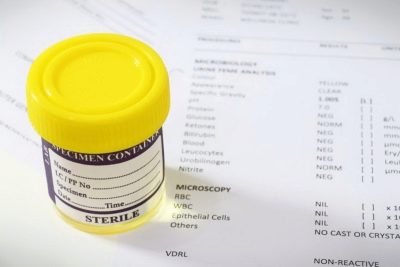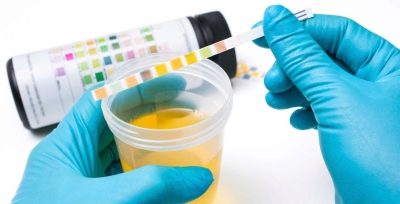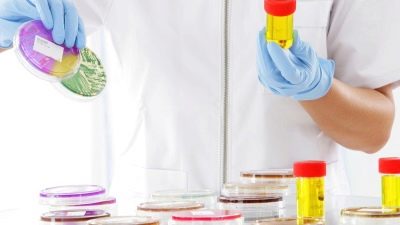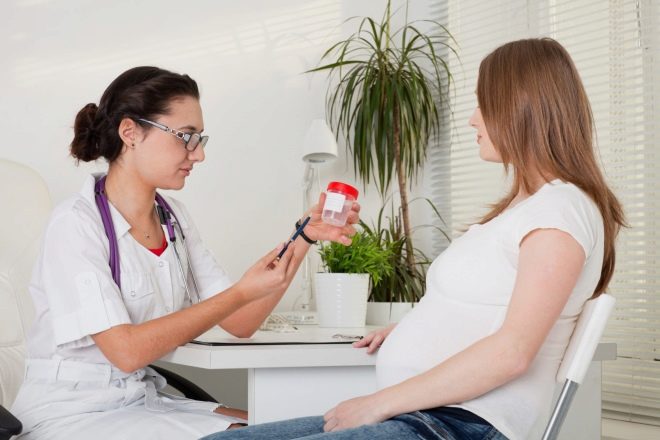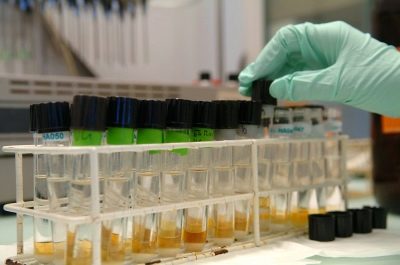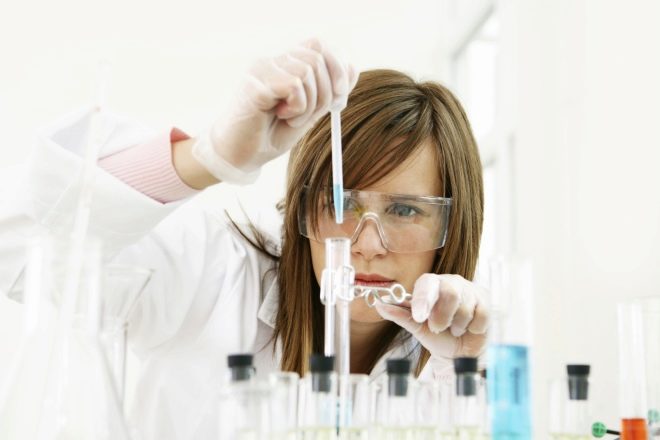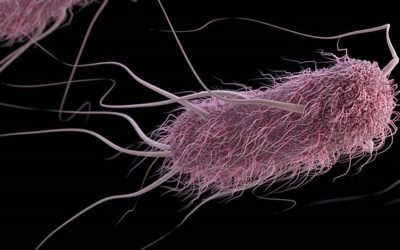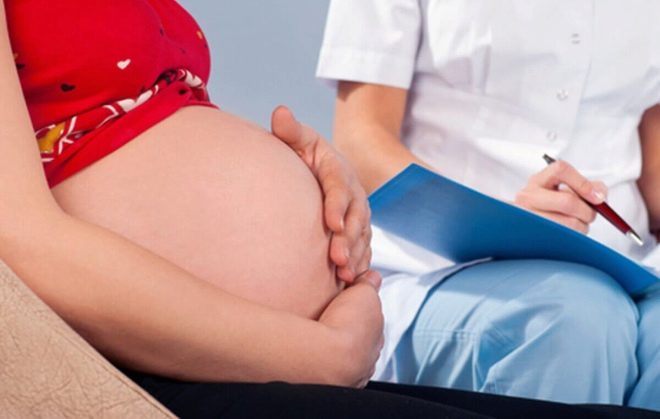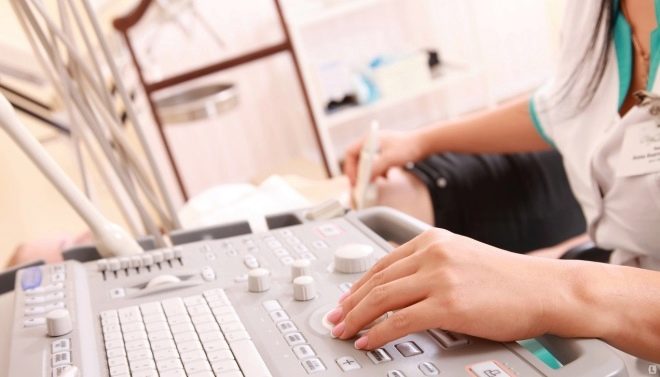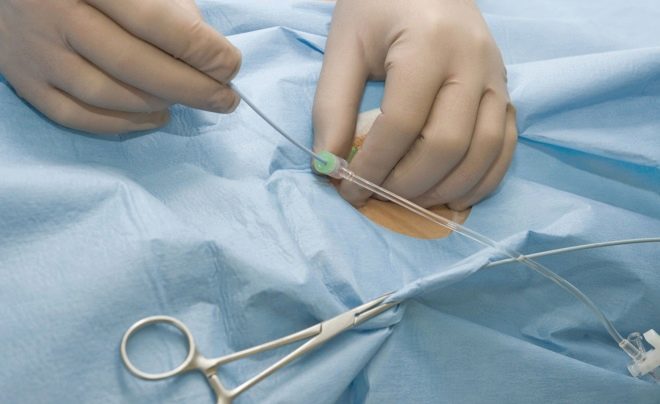Why can bacteria be detected in the urine during pregnancy and what to do?
The appearance of various microbes in the urinary sediment is a rather dangerous symptom, especially during pregnancy. The appearance of a bad result of urine urine output causes a pregnant woman to be a real shock. Worry future mom is not worth it. This condition responds well to therapy.
What it is?
Urinalysis is one of the basic laboratory tests that are prescribed during pregnancy. With this simple study, doctors get a lot of different clinical information. If bacteria are present in the urinary tract of the future mummy, this symptom also manifests itself in the urine. In this case, as a result of the general analysis of urine, a special label appears indicating that microorganisms are present in the urinary sediment. The appearance of such a sign requires mandatory consultation with an obstetrician-gynecologist and a general practitioner who observe a woman during pregnancy.
Urinalysis - a kind of screening test, which shows only the presence of microbes in the urinary tract. Determine what microbes are, unfortunately, this method is impossible. For the typing of bacteria, a special study is conducted, which is called bacteriological. Abbreviated this method experts call bakposevom.
Reviews of moms who conducted this study indicate that this test was able to timely treat the exacerbation of many renal diseases. There should be no bacteria in normal urine. The appearance of microbes in the urinary sediment is always a sign of trouble. This symptom should never be ignored.
Bacteriuria is a pathological condition caused by the appearance of various bacteria in the urine. A variety of causes can lead to the development of this pathology. This condition can also develop in a woman before pregnancy. If the future mother has any kidney and urinary tract diseases before conception, then the risk of developing bacteriuria increases several times.
Causes of development
It often happens that the carriage of various pathogenic bacteria is asymptomatic. Many expectant mothers do not even suspect that they have signs of bacteriuria. It is detected spontaneously, when conducting a general urine test, which is regularly prescribed to all pregnant women:
- Pathology of the kidneys and urinary tract - These are the most common causes of bacteriuria in a pregnant woman. It is important to note that such pathologies usually manifest themselves not only by the appearance of bacteria in the urinary sediment. Also, in these conditions, the number of erythrocytes or leukocytes in the urine changes, the pH and density change.
- Pyelonephritis and cystitis are the most common pathologies leading to the appearance of a large number of bacteria in the urine. Every year, these diseases of the excretory system are the leading causes in the development of bacteriuria in pregnant women. Pyelonephritis, as a rule, has a hidden course and can practically not manifest itself before pregnancy.
- Physiological weakening of immunitythat occurs during any pregnancy, promotes the proliferation of bacteria. Ultimately, this is manifested by the appearance of bacteriuria.To eliminate this symptom requires the mandatory appointment of special medicines and uroseptikov.
- Many mommies are interested in why during pregnancy, all renal diseases are activated. The answer to this question is simple. The uterus growing in volumes exerts a strong pressure on the kidneys and ureters, which are located retroperitoneally. This leads to the fact that the outflow of urine through the urinary tract is significantly hampered. A protracted process and contributes to the emergence of bacteriuria.
- Multiple hormonal changes occurring during pregnancy lead to the development of stagnant urine in the ureters. Congenital malformations of the urinary tract only aggravate the development of this condition. Also, according to statistics, miniature women with a narrow pelvis are more susceptible to the development of bacteriuria.
- Bowel disease, especially its final divisions, may contribute to the development of combined pathologies of the urinary tract and kidneys. Doctors note that in women suffering from intestinal dysbiosis, the risk of developing bacteriuria increases several times.
- Personal hygiene violation - Another item that leads to the development of bacteriuria. During pregnancy it is very important to conduct regular washing. Underwear should always be ironed with a hot iron on both sides. Such a simple preventive measure will help to avoid bacteriuria in the future mom.
- Immunodeficiency states provoke the development of bacteriuria. Their severity may be different. In order to correct the resulting disorders, it may be necessary to prescribe special therapy.
How is bakposev performed?
Bacteriological testing requires proper collection of urine. This should be done in the morning, immediately after waking up. To collect for the study you need a medium portion. To do this, you must first urinate a little in the toilet.
Before collecting urine for a study, doctors recommend washing. This should be done from front to back. Such a simple measure will help prevent the possible entry of Escherichia coli and other microbes from the anal zone to the region of the external genital organs.
For washing, you can use regular baby soap or special products that do not have an aggressive chemical composition and have a neutral pH. Also, you can wash away and ordinary water. This should be done necessarily, since non-observance of the rules of hygiene often enough leads to a distortion of the results obtained.
Material should be collected in a clean, dry container. You can buy it at any pharmacy near the house. Pay special attention to ensure that the lid of such a plastic container is tightly screwed. This will prevent possible urine leakage during transport to the laboratory.
Bring the analysis to the clinic for research should be with the direction. It is issued "on the hands of" a pregnant woman in the antenatal clinic. In such a medical form indicates the data of the patient, as well as the duration of pregnancy. Also in the direction can be placed special marks for laboratory technicians.
To deliver the biomaterial to the laboratory should be a maximum of 2 hours after its collection. Such accuracy is necessary for timely sowing on nutrient media. In some cases, it is allowed to store collected urine in the refrigerator for 8 hours. However, it should immediately be noted that in the future this may lead to false results.
For carrying out bacposev special nutrient media are used. They are selected taking into account the characteristics of the life cycle of the studied microbes. Such a “cultivation” is carried out in special conditions that are created by instruments and devices.
Microbial colonies take several days to grow. This is largely due to a sufficiently long period of holding bakposev. It usually takes at least 5-7 days to complete this study.
Importance of research
The constancy of the normal microflora of the external genitalia of a pregnant woman, especially during third trimester very important. 38-40 week - this is the final stage of pregnancy. During labor, the baby will pass through the mother's birth canal. It is during this period that he can “pick up” the bacteria that are present in this zone. In order to prevent this and bacteriological studies are carried out.
The importance of holding bakposeva during pregnancy can not be overemphasized. This is due to the fact that this analysis is carried out at least twice over the entire period of childbearing. For the first time it is carried out at the time of registration for pregnancy in the antenatal clinic. The next bakposev is already running at week 36.
If the expectant mother has any diseases of the kidneys or urinary tract, then this study may be conducted more often.
Bakposev, carried out during pregnancy, not only allows you to identify pathogenic microbes, but also helps doctors prescribe a better treatment.
Using this analysis, specialists can predict the course and prognosis of a specific pathology, as well as suggest the potential risk of bacteriuria to the fetus.
Decryption of analyzes
Evaluation of the research results is carried out only by a doctor. Laboratory assistants indicate on the form the obtained values, which are further interpreted by an obstetrician-gynecologist. It should be noted that according to one analysis the diagnosis is never set. To establish the pathology, a whole set of clinical signs is evaluated, as well as data from other laboratory and instrumental studies. The results of the analysis are calculated in special units of measure called CFU. The calculation is carried out on 1 ml of the test liquid. Normal values do not exceed 1000 CFU / ml. In such situations, as a rule, doctors do not prescribe any special treatment.
If the result of the analysis is in the range from 1000 to 100000 CFU / ml, then the re-execution of the study is required. This result is dubious. Also in this case, the doctor may recommend to pass additional biochemical tests. Excess above 100,000 CFU / ml is already adverse and requires therapy. Treatment is prescribed only after diagnosis. A severe exacerbation of a bacterial infection is a medical indication for the urgent hospitalization of a future mom to the hospital.
Asymptomatic bacteriuria variants are often triggered by Escherichia coli. This germ can colonize the genitals and mucous membranes of the urinary tract, without causing any adverse symptoms. Only with an increase in its concentration in the urine, a woman begins to show some clinical signs that give her some discomfort. The combination of high leukocytes and bacteria in the urine is an extremely unfavorable symptom. As a rule, it indicates the development of infectious pathologies of the urinary tract and kidneys. Also, this symptom may occur with poor collection of urine for research. In such a situation, leukocytes "fall" into the urinary sediment from the genital tract.
What does a bad analysis mean?
The appearance of bacteria in the urine should not cause a shock to the future mother or introduce her into a state of panic. To begin with, this analysis should be simply rechecked. In this case more thorough preparation should be carried out. Before collecting urine, it is imperative to perform all hygiene procedures. This will help to get a more accurate result.If, however, bacteria were obtained in the reanalysis, then this is already the reason for carrying out the extended diagnostic complex. If necessary, the patient is sent for consultation to the urologist. This is especially necessary if the expectant mother had any diseases of the kidneys or urinary organs before pregnancy.
The appearance of increased staphylococcal concentration in bacposse is a significant reason for prescribing therapy. If violations are expressed slightly, the appointment of antibiotics is not required. It should be noted that during pregnancy, doctors resort to the appointment of antibacterial agents only in exceptional cases when there is no other alternative. Taking antibiotics, especially in the early stages of pregnancy, can be extremely dangerous.. A moderate amount of bacteria can get into the urinalysis and during a healthy pregnancy. This usually occurs in cases where the collection of the biomaterial was not performed correctly. To prevent the development of such a situation, doctors recommend closing the vaginal area with a cotton pad or swab. This will help prevent bacteria from entering the urine.
Normally, no pathogens should be present in the urinary sediment. Deviations from normal indicators should be a mandatory reason for additional diagnostics. In this case, it may be necessary to hold several bakposev urine with an interval of several weeks. In certain situations, when a woman has kidney disease, an ultrasound scan may also be necessary.
Next steps
Hospitalization is a necessary measure, applied only in case of severe bacterial infection. Also, doctors can resort to her when there is a real threat to Mommy or her baby. In this case, it is required to inject drugs by injection. The length of hospitalization may vary and depends on the initial severity of the future mother or fetus. The primary goal of therapy is to normalize the reduced outflow along the urinary tract. For this purpose, special medicines with diuretic action are used. Dosage and frequency of use are determined individually, taking into account the weight and condition of the patient.
In some cases, to improve the urinary outflow, doctors recommend that the future mom with a worsened urinary infection should lie more on the intact side of the body. Some specialists prescribe a special positional drainage therapy. To do this, use the knee-elbow posture.
Pain relievers and antispasmodics can be used to relieve pain. These funds not only reduce the severity of pain, but also help to improve the flow of urine through the ureters. As such drugs can be used "Drotaverine hydrochloride", "Baralgin" and many others. Antispasmodics are administered, usually by injection.
In cases of ineffectiveness of conservatively administered therapy, more invasive methods are used - catheterization of the pelvis with stents or special urological instrumentation. This procedure is performed only by a urologist for strict medical reasons. The risk of causing traumatic injuries with these invasive methods is quite high. This is due to the fact that these studies are not conducted by all pregnant women who have impaired urine outflows. In case of a severe course of bacterial infection of the urinary tract, antibacterial and detoxification therapy is also prescribed. Such treatment is necessary to normalize the general condition of the expectant mother. Also, without this therapy, it is impossible to reduce the risk of the formation of possible pathologies in the fetus.
PH normalization is an important step in the treatment of bacteriuria. Doctors have long noted that in a modified environment, many bacteria begin to actively proliferate.Normalization of the pH leads to the restoration of the excretory function. This can be achieved through the use of various urosepticheskimi drugs. In uncomplicated cases, doctors resort to the appointment of medicinal herbs that have this type of action. These drugs are assigned to the course reception. After treatment, the effectiveness is necessarily evaluated. To do this, reappointment of urine is assigned.
As uroseptikov, which can be used at home, cranberries and lingonberries are perfect. These northern berries contain quite a lot of biologically active substances that have a pronounced uroseptic effect on the urinary tract. Cranberry or lingonberry juice is an excellent drink for all pregnant women.with adverse bacteriuria.
See the next video for more on asymptomatic bacteriuria.


